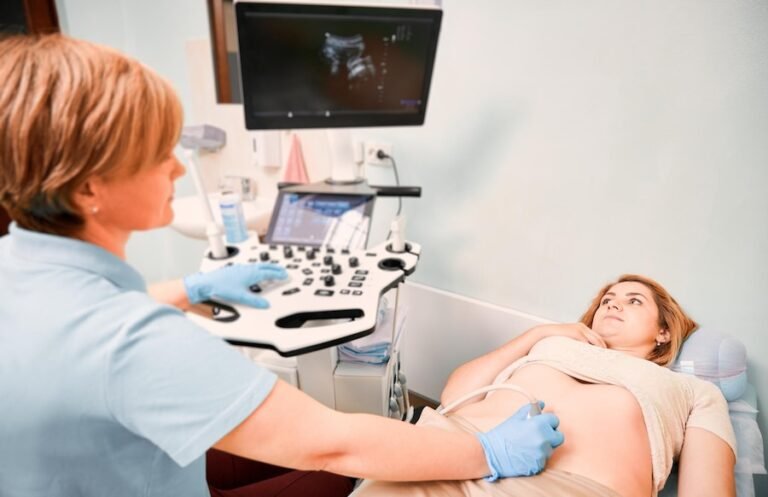Advances In PCOS Research: Promising Developments
Polycystic ovary syndrome (PCOS) is a common endocrine disorder affecting reproductive-aged women, characterized by hormonal imbalances, irregular menstrual cycles, and ovarian cysts. PCOS not only impacts fertility but also increases the risk of metabolic complications such as insulin resistance, obesity, and cardiovascular disease. “PCOS Treatment in Paschim Vihar” Over the years, significant progress has been made in understanding the underlying mechanisms of PCOS, leading to promising developments in diagnosis, treatment, and management. In this article, we explore recent advances in PCOS research and their potential implications for improving patient outcomes.
I. Enhanced Diagnostic Criteria “PCOS Treatment in Paschim Vihar”
Traditionally, the diagnosis of PCOS relied on the Rotterdam criteria, which included the presence of two out of three criteria: oligo-ovulation or anovulation, clinical or biochemical signs of hyperandrogenism, and polycystic ovaries on ultrasound. However, recent advancements in PCOS research have led to proposed revisions in diagnostic criteria to improve accuracy and specificity.

New diagnostic guidelines, such as the Androgen Excess and PCOS Society (AE-PCOS) criteria and the International PCOS Network (IPONS) criteria, aim to address limitations of the Rotterdam criteria by incorporating additional parameters such as anti-Müllerian hormone (AMH) levels, ovarian morphology, and clinical signs of hyperandrogenism. These updated criteria may help identify subsets of patients with different phenotypes and metabolic profiles, facilitating personalized management strategies.
II. Molecular Insights into Pathogenesis
Recent research has elucidated the molecular mechanisms underlying the development and progression of PCOS, shedding light on potential therapeutic targets. Dysregulation of ovarian steroidogenesis, insulin signaling pathways, and inflammation have emerged as key contributors to the pathophysiology of PCOS.
Studies have identified aberrant expression of genes involved in androgen biosynthesis, follicular development, and insulin sensitivity in women with PCOS. Targeting these molecular pathways with pharmacological agents such as anti-androgens, insulin sensitizers, and anti-inflammatory drugs holds promise for mitigating PCOS symptoms and improving reproductive outcomes.
III. Novel Therapeutic Approaches
In addition to conventional pharmacological treatments such as oral contraceptives and insulin sensitizers, researchers are exploring innovative therapeutic modalities for PCOS management. Emerging interventions include:
1. Metformin Extended-Release (XR) Formulations:
Metformin, a first-line therapy for insulin resistance in PCOS, has been available in immediate-release (IR) formulations for decades. However, recent studies have investigated the efficacy of metformin extended-release (XR) formulations, which offer improved gastrointestinal tolerability and dosing convenience. Metformin XR may provide sustained glycemic control and metabolic benefits in women with PCOS, reducing the risk of adverse effects such as nausea and diarrhea.
2. Gut Microbiota Modulation:
Growing evidence suggests a link between gut microbiota composition and metabolic disturbances in PCOS. Manipulating the gut microbiome through probiotics, prebiotics, or fecal microbiota transplantation (FMT) holds potential for improving insulin sensitivity, reducing inflammation, and ameliorating metabolic dysfunction in PCOS. Clinical trials evaluating the effects of microbiota-targeted interventions on PCOS outcomes are underway, offering novel therapeutic avenues for exploration.
IV. Personalized Medicine Approaches “PCOS Treatment in Paschim Vihar”
The heterogeneity of PCOS presents challenges in designing effective treatment strategies that address the diverse clinical manifestations and metabolic phenotypes observed in affected individuals. Personalized medicine approaches aim to tailor treatments to the specific needs and characteristics of each patient, optimizing therapeutic outcomes and minimizing adverse effects.
Advancements in genomic medicine, metabolomics, and machine learning algorithms have facilitated the identification of PCOS subtypes and predictive biomarkers associated with treatment response. By integrating clinical, genetic, and biochemical data, clinicians can stratify patients into distinct phenotypic clusters and prescribe targeted interventions tailored to individual profiles.
V. Lifestyle Modification and Behavioral Interventions
While pharmacological therapies play a crucial role in PCOS management, lifestyle modifications remain cornerstone strategies for improving metabolic health and reproductive outcomes. Dietary modifications, regular physical activity, and behavioral interventions can help mitigate symptoms such as insulin resistance, obesity, and menstrual irregularities in women with PCOS.
Recent research has emphasized the importance of personalized lifestyle interventions tailored to the specific needs and goals of each patient. Intensive lifestyle modification programs combining dietary counseling, exercise regimens, and psychological support have shown promise in promoting weight loss, improving insulin sensitivity, and restoring menstrual regularity in women with PCOS.
VI. Future Directions “PCOS Treatment in Paschim Vihar”
The field of PCOS research continues to evolve rapidly, driven by ongoing advancements in technology, genetics, and therapeutics. Future research directions may include:

1. Longitudinal Studies:
Long-term prospective studies are needed to elucidate the natural history and progression of PCOS across the lifespan. By tracking disease trajectories and outcomes over time, researchers can identify critical periods for intervention and refine prognostic models for personalized risk assessment.
2. Precision Medicine Trials:
Large-scale precision medicine trials incorporating multi-omics data, advanced imaging techniques, and artificial intelligence algorithms can provide insights into the efficacy and safety of targeted therapies in PCOS. By stratifying patients based on molecular subtypes and treatment responses, precision medicine approaches can optimize therapeutic outcomes and inform clinical decision-making.
3. Patient-Centered Outcomes Research:
Patient-centered outcomes research focusing on quality of life, patient satisfaction, and psychosocial well-being can provide valuable insights into the holistic impact of PCOS on affected individuals. By incorporating patient perspectives and preferences into study design and outcome assessment, researchers can ensure that interventions address the diverse needs and priorities of women with PCOS.
Conclusion
Advances in PCOS research have ushered in a new era of understanding and innovation, offering hope for improved outcomes and quality of life for women affected by this complex endocrine disorder. From refined diagnostic criteria and molecular insights to personalized therapeutics and lifestyle interventions, recent developments hold promise for transforming the landscape of PCOS management. By embracing interdisciplinary collaboration, leveraging cutting-edge technologies, and prioritizing patient-centered care, the field of PCOS research is poised to make further strides toward effective prevention, diagnosis, and treatment of this prevalent and impactful condition.
For any further queries, Plz visit gynaecentre.in or you can check our social media accounts, Facebook, Instagram








